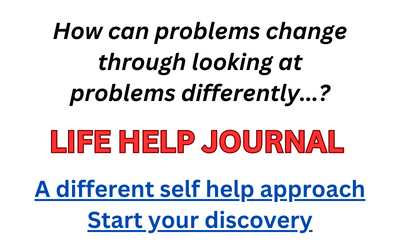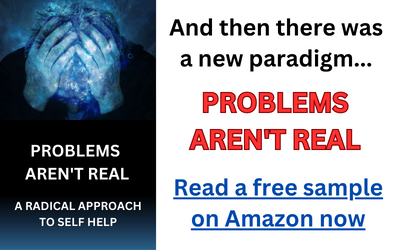Take a few moments to consider what causes you to feel stress at work. Do it now.
Finished?
I’ll bet thinking wasn’t one of the things you considered as a cause for stress at work. Was it? If not, you can take all of the things that you did consider and toss them aside; because thinking is the one, and the only, cause of stress at work.
Most people will reject this notion right off.
That’s ridiculous! What causes me stress at work is my hostile boss! What causes me stress at work is the long hours! What causes me stress at work is office politics! What causes me stress at work are the expectations! What causes me stress at work is…. everything except thinking!
In fact none of the circumstances above, and no other external circumstance, causes stress. Stress is an internal process — it comes from the inside, not the outside.
I’m not saying that work circumstances are necessarily pleasant or easy. Often times they are not. But the experience of stress at work is caused by thought, and nothing else. If you do not come to understand and accept this you will be a prisoner of stress and other negative emotional experiences for the rest of your life.
Here’s how stress at works happens: An event occurs — say your boss gives you a significant amount of work to do within a tight timeline. Or your boss speaks to you in a hostile tone. What comes next? Most people would say that what comes next is some form of a stress response. This assumption is incorrect. What comes next is a mental interpretation of the event, interpretation which occurs through thought. Specifically the event is considered, and then labeled, and then the labeling is accepted as truth.
Then the stress response occurs. The stress response does not occur — never, ever, ever — until this thinking process does.
Most people are so stuck in their thinking, they have become so absolutely identified with the incessantly chattering voice in their head, that they no longer even notice it. So when this voice says things like ‘This is awful!’ the statement is given an instant stamp of approval and considered to be coming from “me” and / or to be speaking some absolute truth.
But here’s an insight for you: the voice in your head is not you, it is your ego; and the things that it says are often not the truth.
You, the genuine state of you, is silent and peaceful. The genuine you is not worried about or afraid of anything. The genuine you is also extraordinarily powerful and important. You may think of yourself as nothing more than a spoke in the wheel — and maybe not even a spoke. In fact no being and no thing is more significant and important than you are.
Do you believe this? Maybe you’ll be more inclined after implementing the following stress reduction method.
Watch your thoughts, watch your emotions. Watch them neutrally, without judgment, without analysis, without question. Just watch.
What will come of this? As you watch your thoughts and your emotions they will come, and then they will go. What you will be left with is the genuine you — at peace, content, free from suffering.
Do not — ever — attempt to push your thoughts or emotions away or in any manner manipulate them. Let them be exactly as they are. Let them say exactly what they want to say, let them feel exactly as they feel. All that you do is watch them neutrally.
Most advice or tips for reducing stress suggest, in one way or another, manipulating the external world. This is a pointless exercise: you will never be able to control the external world for long — it shifts, it changes, it disappears, it reappears as something different, and it does all of this continuously. The external world and the life experience are the waves; you are the ocean whose greatest depths are always calm and serene.
Reach this serenity through watching.
When events happen at work watch whatever thoughts come up in response, whatever emotional reactions come up in response; don’t judge or label — just watch. And as you watch you will find that the thought and / or the emotion loses its intensity, loses its focus, and then disintegrates altogether. But do not watch only when something is occurring at work: make it a habit to watch your thinking and your emotions.
This regular practice will serve as conditioning and will more and more reduce your stressful responses (and not just stress responses but other negative responses as well) and more and more bring about the peace and contentment that is really you.

